The "Listen to Musicians" section is a section where professionals who usually play music on the stage go down the stage and speak in words.This time, we will interview Kay Ueyama, who is active in Paris, as a guest. I would like to talk about the theme of "studying abroad in music."
(Interview: March 2012)
― Kay Ueyama Profile―
Born in London and raised in Tokyo. 2004 Paolo Bernaldi Harpsichord Competition 19nd place (Italy).The XNUMXth International Early Music Competition <Yamanashi> Harpsichord Division XNUMXrd place (Japan).
Kiriho Gakuen University Piano Department, Amsterdam Conservatory Harpsichord Department (Netherlands), Longy Conservatory Harpsichord Master Course (USA), Brussels Royal Conservatory Fortepiano Department Master Course Completed (Belgium).Currently active as a harpsichord player and basso continuo player mainly in Paris and Tokyo.
In 2010, he performed as a soloist on Bach's Harpsichord Concerto and Brandenburg Concerto All-Songs Tour by Les Siecles and Prometheus 21 (France).The performance at that time was broadcast on radio and television in France and gained popularity.In addition, the performances at concerts held in the Netherlands and the United States were taken up by the local media and were highly evaluated.Performed at the Boston Early Music Festival (USA) and the Mozart Music Festival (UNESCO World Heritage Wurzburg Palace, Germany).Concerts will also be held at Sal Preyer (France), Chapel Royale (Palace of Versailles, France) and the Royal Musical Instruments Museum in Brussels (Belgium). In 2001, he made his debut as a harpsichord player by playing the Bach Goldberg Variations in Boston (USA) and Tokyo. In 2012, all of Duport's cello sonatas will be recorded for the first time in the world with cellist Rafael Pido, and a solo recording of the Bach: Goldberg harpsichord will be released at J. Luckers harpsichord in the Neuchatel Museum, Switzerland. (Both are released from Integral Classic)
He has studied piano under Junko Kojima and Victor Rosenbaum, fortepiano under Piet Kuijken and Boyan Botinicharov, and harpsichord under Peter Sykes, Meno van Delft, Christophe Rousset and Yuget Dreyfus. Participated in G. Leonhard's master class.
――First of all, please tell us a brief background of Ueyama.
Ueyama I learned piano in the music class of Toho Gakuen for 1 years from the 3st grade of elementary school to the 9rd grade of junior high school, and then went to the piano department of Toho Girls' High School musician, Toho Gakuen University.Six months after graduating, I will study abroad at the Longyi Conservatory in Boston, USA for two years.However, I was also interested in fortepiano and harpsichord, so I started learning old instruments at the same time as the piano lesson, and after getting a piano day proma, I took a master's course in the harpsichord department for two years.After that, I went to the Amsterdam Conservatory for two years because I wanted to learn the style of the 2th and 2th centuries properly in Europe where early music is flourishing. I spent 6 years.When I noticed, I spent XNUMX years in XNUMX countries and just returned to Japan (laughs).
――What was your first touch with the harpsichord?
Ueyama When I was in high school, I took a class called Early Music Training by Masahiro Arita sensei.In the last class, I had the opportunity to visit sensei's house, and there were various musical instruments like a museum, and for the first time I played the XNUMXth century antique harpsichord.I didn't know the structure of the harpsichord at all yet, and I had the knowledge of a keyboard in the Bach era, but it was a shocking event that overturned the musical idea I received in piano education with a tone I had never heard before. was.In Arita sensei's class, for the first time, I heard the dance styles of minuet and sarabande, and the politics and customs of the XNUMXth and XNUMXth centuries in Europe, which I had never heard in piano lessons.Even though it is Bach's English suite, there are coolants written in French and Italian styles, how to distinguish them, how to play them, and what kind of dance the tempo is.
I think everyone practiced seriously for 8 hours every day, endured even though they were angry, and worked hard just thinking about getting better, but for the first time, I taught Arita sensei the connection between music and European culture. I don't even know the basics such as [the court musicians and composers were hired to compose for the king]! (Laughs) I was really wondering if Bach was really alive in the first place (laughs).
In that sense, rather than just playing the notes on the score cleanly, quickly and well to win the prize in the competition, more essentially how music was born, familiarized and developed in Europe, European culture. I started to be interested in whether it had penetrated into the inside.Bach's music is so wonderful that it still remains 300 years later, and I couldn't fully understand that it is being played all over the world, including Japan, in Japanese piano education.
- So that's it.Arita sensei taught me that.
Ueyama: Arita sensei opened a new door ...
That's why all the friends around me who are playing baroque music now are active on world tours as first-class members in Japan and authentic Europe, but all the children who originally worked hard on modern violin and modern piano I felt like I woke up to baroque because I wanted to get closer to the composer (laughs).
Since I was little, everyone says, "Play Mozart with the image of pearls rolling around," but who decided it (laughs)?It was very strange even though I was a child.I've never been to Germany.
[Mozart is a genius, a genius, but is he really alive? ] I was wondering, but when I went to the Mozart House in Vienna, it was a beautiful room with an angel drawn on the ceiling that I was actually composing, but I thought that I was alive for the first time when I saw it. rice field.Depending on what kind of fortepiano Mozart actually used, Beethoven, Haydn, Mendelszone, and Liszt's house became a museum, and depending on what kind of fortepiano was used, almost the same model of fortepiano now exists. You can get to know the [world of sound] that the composer had imagined by playing the piano.Then, even when I played the Stanway, the image of what kind of piano each composer was playing and composing became clearer, and I could feel the world of the composer's sound closer. rice field.I visited and played as much as possible the musical instrument museums and personal collections that I could play on my trips to the United States and Europe.In that sense, I started to be interested in ancient musical instruments when I was in high school.
――You majored in piano while you were in Japan, didn't you?
Ueyama Yes.You probably don't have the courage to change from the piano you practiced from a young age to, for example, the harpsichord or the fortepiano in Japan. sensei will be very opposed to it, and the atmosphere is not allowed not only for parents but also for those around them.In the United States, I have a very free atmosphere where everyone can do what they like in their own lives, regardless of what they want to learn or their age, that they should continue studying no matter how old they are. Even though sensei on the piano doesn't like baroque (laughs), he said, "Because it's a once-in-a-lifetime experience, do what you like."I really appreciate it.
――No matter how much you are in the United States, you need courage when you decide to change your major.
Ueyama Yes, I was worried every day for half a year.Until now, I transferred to the harpsichord after studying the piano for two years in the United States, but when I was 2, I wondered if I would throw away the piano I had studied for almost 24 years, or close the piano lid. I was afraid that it was ...
I didn't know if the harpsichord would suit me at all, I couldn't ask anyone, and there was no other example (laughs).
――I think there are few people who change majors, but among them, there are few harpsichords, right?
Ueyama Toho's graduates studied abroad in London and Germany with modern pianos, and Italy, Giuliano, Indiana, etc. are all modern pianos.
――I think that when you change to the harpsichord, the scene of your activity will be different from that of the piano.
Ueyama It's completely different.
――Is there at least a number of harpsichord recitals?
Ueyama Of course there is.Some people have opened up the idea of introducing harpsichord and baroque music to Japan.If the piano population is 100, I think the harpsichord population is about 3.
――In the harpsichord, I'm worried about how the instrument can be stored and whether it's okay at home.
Ueyama That's right, there are many things you don't understand.First of all, in my sense, the harpsichord touch is one-third as light as a piano keyboard.So, if the pianist suddenly plays the harpsichord, he will hit it too much and it will break!
The decisive structural difference from the piano is that the piano makes a sound with a hammer, while the harpsichord repels the strings with something like a small claw, so if anything, the harp has a keyboard. It is an image like that.In the XNUMXth and XNUMXth centuries, the part of the harpsichord that plucked the strings was like a XNUMXmm claw with a bird's feather cut.It doesn't move as much as a good harpsichordist, it looks like your fingers aren't doing anything.For example, if you want to make the violin pizzicato resonate in a larger hall, it will not resonate at all if you flip it shallowly, so it will resonate if you feel more tension and play it at the end.
――Yes, I understand.
Ueyama: The harpsichordist does that with his fingers.
- So that's it.
Ueyama On the contrary, when you hit it, the sound is crushed and only a dirty sound is produced.You need a sense of your fingertips in millimeters, how you can feel the bird's feathers (now like plastic claws) touching and flipping the strings when you touch just a few millimeters of the keyboard. is.When I switched to the harpsichord, I had a 2-year habit of modern piano in my body, so I hit it, turned my arms, and my elbows sang for some reason. (Laughs) I started by removing the habit of swaying my shoulders and body back and forth and getting rid of the habit of training only my fingers in millimeters.
- That seems tough….
Ueyama When I was practicing, when I thought that my movement was too big, I had no ruler to fix my back (laughs), so I put my umbrella on my back and practiced (laughs).You can see how you are doing useless movements.Anyway, my fingers are weak and I don't need any force, so all the muscles of the piano have fallen.
――So now it's hard to play the piano?
Ueyama Now, when I play the piano, it looks like kintore (laughs).The fortepiano of the Mozart era was an early piano invented when the harpsichord still existed, so the keyboard is light and can be played with the harpsichord technique.With the invention of the fortepiano, the structure of the instrument changed, and it became possible to put out strength and weakness, and Mozart was overjoyed at the latest instrument and made a piano sonata ... I think that is really moving.So, I went back to the harpsichord (from the latest technology, the piano), but I think the unique charm of the piano, which has evolved so much, is wonderful.When I listen to Brahms' songs, I feel the profoundness of walking on a red carpet, which is a different attraction from baroque music.
About seven years after devoting myself to the harpsichord in the United States, Amsterdam, and Paris, I thought it was my last chance to learn fortepiano, so while living in Paris, I entered the fortepiano department of the Brussels Conservatory in Belgium and attended for two years.I took a Thalys high-speed train like the Shinkansen from Paris once a month.It takes 7 hour and 1 minutes from Paris, so there were many students who went to Tokyo as if they were going from Chiba (laughs).Since I was working as a harpsichord in an orchestra in Paris, I thought it would be impossible to move to a fourth country and start over, so it's different from the early days of Haydn's fortepiano to the songs of Frank's Romantic era. I learned how to play the fortepiano and the structure.It was great to learn the development from the harpsichord to the modern piano, because it's hard to learn in Japan.
Now in Paris, the ability to play both modern and baroque is increasing in demand for orchestra and other work.For example, there are some members of the Paris Opera Ballet orchestra who have a stable job and career, but re-enter the baroque violin department to study.Not only modern, but also baroque can be played, which is popular nowadays, and there are quite a lot of people who want to be able to switch to a baroque bow and play it because it is in a la mode.
Still in Japan, modern is modern, baroque is old-fashioned, why is it so unique!You can watch it like that (laughs)
――In Japan, it certainly feels like you're living separately, or something completely different.I think that the number of students who want to study abroad in France is increasing recently. Is there a reason why they can study widely and naturally?
Ueyama: Well, I don't know the details of individual instruments, but the woodwind brass system is certainly very good.
――It's an instrument that originally started in Europe.Going to the home is just a learning experience, isn't it?
Ueyama: The audience will be pleased if you play the piano with the bright sound of the Juilliard school, especially in the United States, especially in New York.However, if you play that kind of performance in Europe, you can play it well, but you don't know the style?It may be said that the content is shallow.
It's completely different depending on whether you study abroad in the United States or Europe, and I think it's different in Italy, France, the United Kingdom, and Germany.Whether you want to play French music or master Beethoven, it depends on your encounter with sensei.Some Russians play great Bach.
On the other hand, a friend who has been studying and working on the piano in London for XNUMX years says that the UK does not belong to France or Germany, so he is free and respects the individual.But since England is Europe, I don't like to deviate from the traditional style.Because America is a person who accepts humanity as it is, saying that her playing style is wonderful.Even with the same freedom, I think the atmosphere and hobbies are different between America and Europe.
――Why did you first study abroad in the United States?
Ueyama When I was in the third year of high school, sensei named Rosenbaum was the president and pianist of the Boston Conservatory and took public lessons at school.I had a public lesson in Japan every year, so I participated every year for four years from the third year of high school.When I took Chopin's Ballade No. 3 lesson for the first time, I was told "Don't communicate with this sensei", so the following year, I became a college student and went to Boston for a summer class.It's an edge.
I started French when I was in college, and I was so attracted to France that I went on a trip, and when I was in the 3rd and 4th grades, I went to a class and went to the Freine Music Festival to take lessons. Not really (laughs).Especially French sensei has a strong personality (laughs).I think there is no choice but to take a lesson to see if it suits you or not.
――It may be different even if you hear from people.
Ueyama: Yes, I was actually recommended by a friend, but there were times when I didn't get it at all.Americans are very open and easy to communicate, but French people have very special communication (laughs).I think many people prefer a private feeling to an open one.I think France is a country with many individualistic conservatives.I think it comes from the fact that we value it because it has tradition and history.
For example, if you're an American, Hello!How are you? Everyone smiles, everyone treats me comfortably, and if you play a little, Bravo! !! !!With that feeling, I think it will grow when you go younger.The policy is to praise and praise and extend.
France is Trevian when it's really good!However, I often hear the expression [not bad = Pamal].For example, in Japanese, if you say "it wasn't bad" after playing, it's not a compliment.However, French people are ironic, so even if they like it, they call it Pamal (laughs).Pamal seems to be a compliment?I heard that from a French friend a couple of years later!The recognition method differs depending on the country (laughs).
When I first started living in Paris, nothing really happened for two years and I was disappointed, really tough ...I have an image of Paris as gorgeous and rosy in my life, but when I actually lived in it, it looked gray (laughs), and I thought that there is no other city with such a big gap.Although it was the hardest part, I think it was a very valuable and wonderful experience for 2 years.There are top-notch music in every field.
- is that so.Does it depend on where you study abroad?
Ueyama: Some people have a good affinity with the country.But wherever I go, I think that the sensei you study will greatly change your impression and fulfillment. Even if sensei is a great performer, he is living in a foreign country for the first time, and he doesn't know how to rent a house and can't talk.However, sensei may be left alone, busy with tours and absent, with only a few intensive lessons a month.Since it is often the case that you can understand the current situation by going there, it is a good idea to actually go and check what kind of place it is, the atmosphere of the town and the conservatory, and above all, the sensei and trust.
- So that's it.
Ueyama: At first, I made countless mistakes and my passport was stolen.Moving from the United States to Europe was quite difficult.
――How did you find sensei to study at Ams?
Ueyama The Netherlands is a mecca / sanctuary in the harpsichord and fortepiano.I asked a senior forte pianist who had been studying abroad in the Netherlands for more than 10 years because his method was still mainstream, saying that the famous Gustav Leonhardt who died the other day, a person like Richter was alive on the piano. Then, I pulled a heavy baggage and went to take a lesson.
Sensei in Amsterdam had only one lesson, but it was very fulfilling.The time was right, the contact email was immediately replied, and he taught me the English Suite for 1 hours.The first sensei to teach me the harpsichord in Boston was a really caring and generous sensei, and I thought there was no better sensei than him.However, after learning the harpsichord from scratch for five years, I thought it would be a good idea to learn the harpsichord, which was originally born in Europe, only for Americans, and I decided to go to Europe, the birthplace, to learn the cultural background. ..
Since sensei in Boston didn't have a connection in Europe, I thought I had to go by myself, so I traveled to Switzerland, France, Belgium, and the Netherlands to find sensei like a forced breakthrough.In fact, when I started studying with sensei in Amsterdam, I felt like I had to start over from scratch, saying that there were so many things I didn't know about in the well.
- So that's it.Already as a performer when you went to France?
Ueyama No, I had just graduated from the Amsterdam Conservatory. When I went to America at the age of 22 and went to Amsterdam at the age of 27, sensei said, "Are you 27? I had three kids when I was 32" (laughs).However, the French baroque music that flourished at the Palace of Versailles has a spirit and atmosphere that is unique to French people, which is familiar to Debussy and Label, and I thought that I would never understand it unless I actually spoke in French and lived. rice field.In particular, the harpsichord practice songs and instructional books are written in Old French in the 3th century, so unless you read and understand them in the original language, you will not know how to play them.I was already 17 years old, and the national application for Convato (Consenvatoire) was up to 29 years old, so I was barely there, but I was tired of doing so much as a student, so I didn't have any plans (sweat), just France. go to!I'm going (laughs).
――You have the courage!
Ueyama I thought I couldn't go back to Japan without going to France for some reason.
――Is your visa okay?
Ueyama I found a house in Boulogne (a suburb of Paris), and a short walk away is the Boulogne Conservatory of Music, where I learned the master's course for two years because of the wonderful harpsichord basso continuo sensei.
While doing so, I was connected to work.
――Is there a chance to get a job?
Ueyama Only one phone call from a friend!In the case of the harpsichord, you don't have the opportunity to send your resume somewhere.For most orchestras, it's enough to have one harpsichord player.
Still, there are more than 10 times as many baroque orchestras as in Japan.There are so many jobs and concerts, and in the case of a well-known orchestra, the performance is decided up to two to three years from now, so I know when I need a harpsichordist for a long time.If the members of the group can't play, any of their friends will be fine, so you'll have to find someone who can play.My friend asked me "Is it free next month?" And answered "I'm open", and from there.
I had few chances to play with the orchestra until then, so I just made mistakes!In a completely different place, there was only one person (laughs), and because of me, I had to re-roll again.Everyone turned around and looked cold ... Even though they were Asians (laughs).At first, he doesn't even say hello.It means that you can pop it.Somehow if I could play it ... I heard that it was okay last time if I was called to the concert several times without saying that it was good and I got a call in succession (laughs).The unknown world was full like that!
From there, the circle expanded, and another member was told to play because he wanted to hold a music festival in his hometown, went there, met another person, and was told to play something together, and the ensemble It wasn't known to the members (laughs) ...
My friend's husband, who invited me to join the ensemble, was actually a famous piano trio cellist, but I didn't know anything (laughs).
When I went to the ensemble's Brandenburg Concerto for the first time, I was wondering, "I'm good at violin, but I don't understand baroque at all, I'm playing Bach like Brahms, who is this person ?!" Lol).The cellist's husband is a person who studies modern and baroque cello at Consen Vatoire and is familiar with both, and he is trying hard to teach the violinist.On the other hand, her wife specializes in baroque, but she doesn't say a word, so when I asked after the rehearsal, "Why don't you tell that person who plays Garger?" There is a person. "Who? !!I just didn't know! ??The person said, "Your harpsichord is too quiet to hear me," and answered, "I'm sorry, but your volume is too loud and it's your fault." Lol)! !!She is often seen as the wife of that famous cellist, and she didn't like it, so she decided not to say it herself.It's still famous, so most people will notice it, but I'm a foreigner, I don't know, I don't know (laughs)
――Your wife must have enjoyed it.
Ueyama That's right.It seems that the character seemed to be quite blurred.That's why I played with my husband for three years, and after that, I went on a European tour of Brandenburg, and the live recording of the Paris concert was broadcast on a classical radio program.After returning to Japan in February 3, the couple asked me, "Is this day and this day free?" From June to November, and asked, "The world of a composer named Duport who had an exchange with Beethoven. So why not record the complete collection of Sonatas that no one has played yet for the first time in the world? "In the meantime, I recorded the Goldberg Variations at the harpsichord in the Swiss museum, which was owned by Marie Antoinette 2011 years ago, so two CDs will be released in 2 countries including Paris and Japan in March. ..
If you go back to the beginning, I'm really grateful to everyone for connecting from one phone call from my friend to this point.
――It's important to connect with people, isn't it?
Ueyama I think it's very important.If you're in a hurry looking for a musician, call a musician you trust and say, "If you can't, introduce another musician you trust," so are you in that connection? It seems that the amount of work will change because it is not.
The child who is trying hard has come to the concerts, rehearsals, cafes and meals, and has permeated the musicians in Paris.While studying abroad, I think that I'm full of studying at school and having a lot of competitions, but if I want to live in music as a job in that area, of course I can't speak the language, and I'm actively doing this myself. I want to do it, I want to do an ensemble, I want to do a concert like this, so I have to clearly insist that I want to introduce a place and a person who can organize it.
――It is often said that Japanese people are quieter in their independence and positivity than in Europe.
Ueyama: Independence and positivity are important, but compared to Europeans, Japanese people aren't raised to assert themselves ...It's a virtue to give up and think about the other person.However, I think that I will gradually get used to it, and I think that it is necessary for a musician to express my opinion clearly.
――What are your musical dreams for the future?
Ueyama The harpsichord instrument is not widely known yet, so I hope that as many people as possible will know about it.
When I was playing Bach on the piano, I was worried about ornamental sounds and had a lot of things I didn't understand, but if the pianist could know how he originally played Bach on the harpsichord, he would play the piano. I think it will be a good hint when playing Bach.I was teaching the Japanese piano sensei in Paris, and he was very pleased to say, "The harpsichord is so fresh."In that sense, I would like you to experience the charm of the world, rather than expanding it.
――Do you have any advice for musicians who want to study abroad and play an active role overseas?
Ueyama: The seriousness, diligence and technique of the Japanese people are highly evaluated in the world, and even among foreigners sensei, they have a good reputation including politeness.However, in foreign countries, there are many performances that say, "Even if you don't have a lot of techniques, it's attractive for some reason, that person's performance ...", but I hope that such musical appeal will be added to the Japanese people. Is it not?
――Why are there so many foreigners?
Ueyama Why is that too?From where?I have been thinking.
I think that the people over there not only practice seriously, but also naturally come into contact with concerts, museums and cultural first-class things in their daily lives and enhance their sensibilities.Also, if you have a clear image and idea of how you want to express yourself without any technique, you will be able to appeal through music.
As Japanese people, we first clear the point of playing properly and then expressiveness, but foreigners need this kind of technique to express ... I think that expressiveness is important first.
For example, you can go home with the music of Debussy that you are currently playing, or anyone can play the Erard piano that Debussy in the museum was playing and composing.I think it is a treasure to have many experiences that can only be done locally.Don't be afraid to fail.I've learned a lot by making mistakes, but I'm not embarrassed, but I've always asked people around me to experience anything and tell me if I don't understand (laughs). ..I can't talk to you because I'm embarrassed, or I'm not confident that I want to see that sensei, but I'm not confident, so I went to a foreign country. , There is no choice but to stretch the antenna.
――It's important to be aware of such opportunities, but if you're vague, you won't notice.
Ueyama: As my friend first told me, I grew up in a greenhouse and knew only music.However, the current situation is that studying abroad is half your life and half your music, and if your life doesn't go well, you won't be able to concentrate on music.I'm treated as an immigrant just because I have trouble with my visa and can't get the documents (laughs).I went to the foreign police station and immigration authorities, and after being lined up for half a day, I finally updated for one year. Sometimes I feel depressed, "Am I a criminal?"Even so, it is important to have a clear sense of purpose as to what you came to do, and if you feel something squeaky, it is important to take positive action without hesitation, or to play at a concert. Sometimes it leads to the story.It's my study abroad life, my life, so I want you to do your best for yourself.Everyone had various times such as laughing and crying, and I think it was good to study abroad, including all of them.I think that such various experiences will add depth to music without knowing it.Sometimes I don't know for myself, but when I listened to the performance of an old friend of the piano who studied abroad in Germany, it changed completely.It was great with more depth.
――Is there a unique environment of Japan?
Ueyama: It's not as safe as Japan, so I think it's difficult at first.No country has more peace than Japan!The escalator talks, the toilet talks, that is a shock to the French (laughs)!It's a country that is completely exhausted.I hear that even if you are an elite and have a history of competition in Japan, you may not know that you can open your heart by studying abroad and being told by sensei to "play more freely".Everyone is worried, falls to the bottom, destroys themselves once, and is reborn, even if he does not notice, if he believes in sensei and looks at the music in a new direction, a musician with a larger scale in a few years Don't be afraid because it may have been.It's the same that everyone is worried about putting themselves in something they don't know or in a place they don't know.Even so, if you believe in yourself and proceed, you may get good results when you forget it, or you may notice your own growth.
――Thank you for your very valuable story.I think that everyone who is going to study abroad will also be helpful.
Ueyama: I don't think there are many international students in the field of harpsichord, so I hope it helps.
――I think you received an interesting episode that will be of interest to everyone, not just those who are aiming for the harpsichord.Thank you so much for today!
-------------------------------------------------- ---------------------------------------
*notice*
A CD with Rafael Pidou (cello) will be on sale at the end of April!
-------------------------------------------------- --------------------------------------


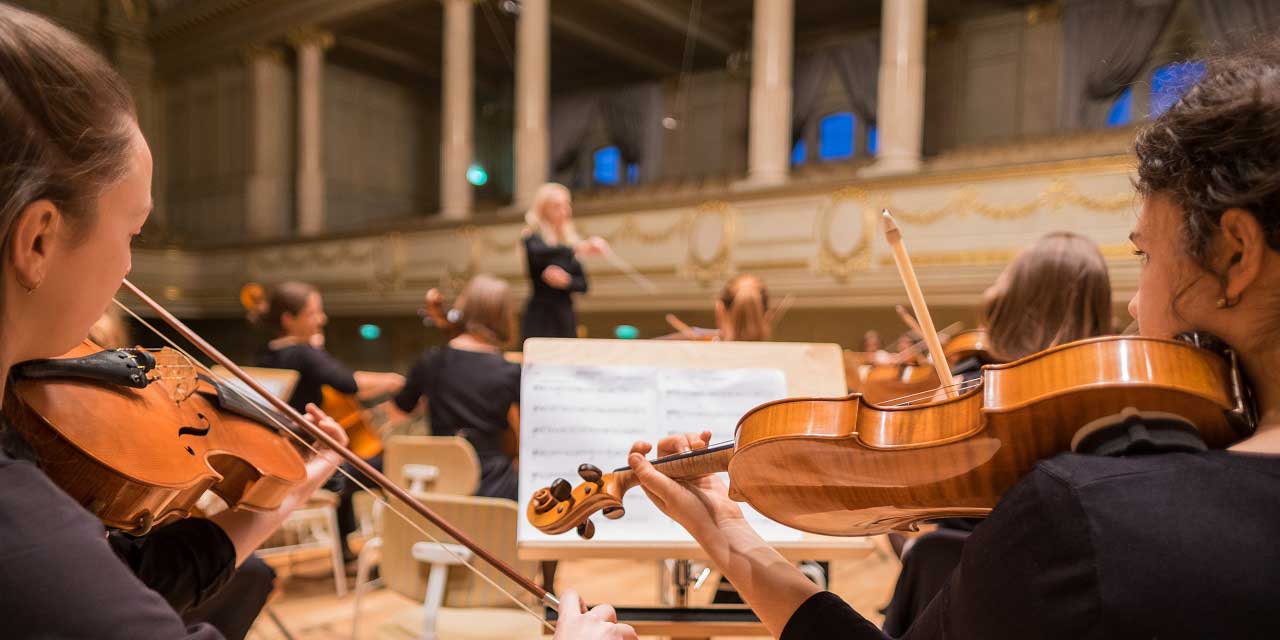
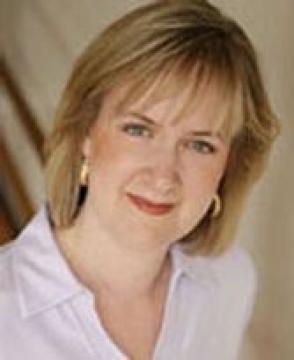
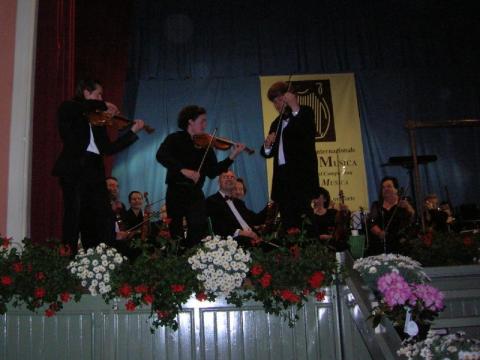

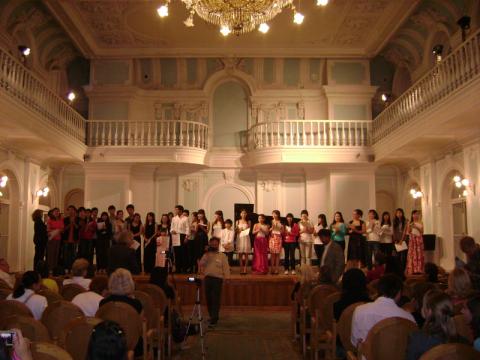
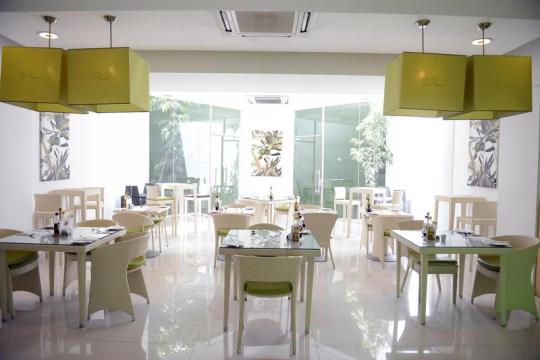
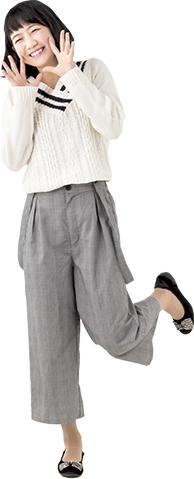

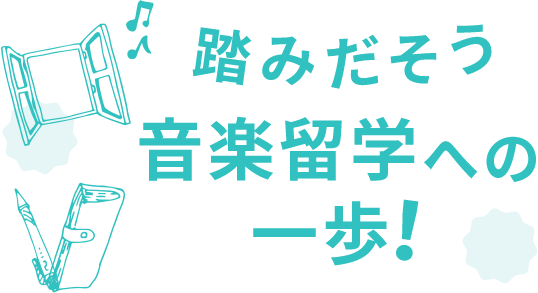
 Book a Counseling
Book a Counseling